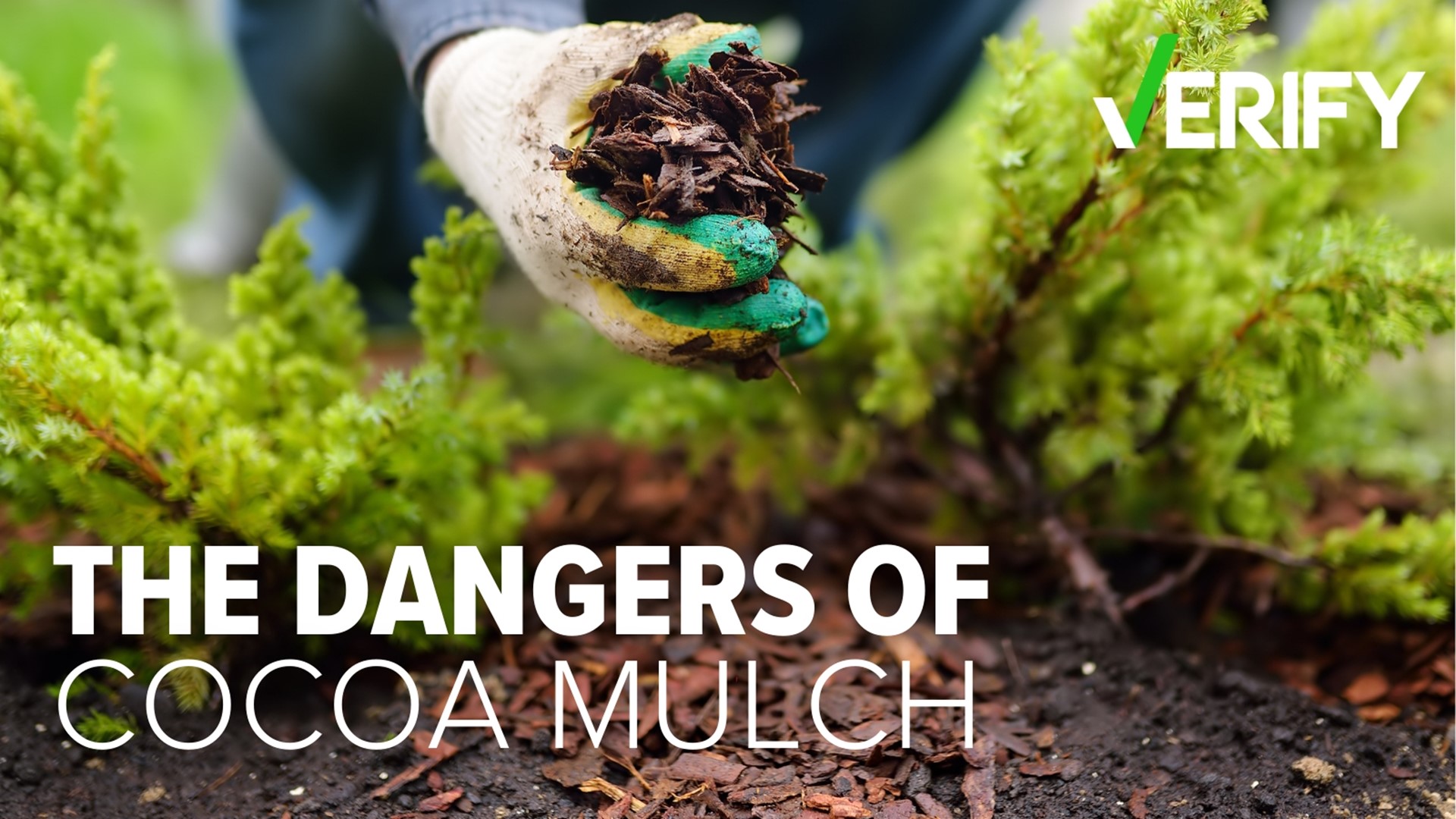CHARLOTTE, N.C. — As we get further into summer, many people will be doing all they can to protect their lawns and gardens from the sweltering Carolina heat.
With folks looking for a solution to protect their plants, many people are worried that some products could be dangerous for their pets. Several posts on social media are warning pet owners not to use cocoa mulch in their gardens, claiming it's toxic to dogs.
THE QUESTION
Is cocoa mulch actually toxic to dogs?
OUR SOURCES
THE ANSWER
Yes, cocoa mulch is toxic to dogs.
WHAT WE FOUND
Cocoa mulch, a byproduct of cocoa production, is a dark brown mulch that is aesthetically and aromatically pleasing. However, the National Captial Poison Center warns the chocolatey scent produced by the mulch can tempt your pets to chew on it. They said cocoa mulch contains theobromine and caffeine, just like chocolate. Both of those chemicals are poisonous to dogs.
Knicely said different brands of cocoa mulch will have different ingredients in them.
WCNC Charlotte's Verify series is all about trying to make a difference in the Carolinas by making sure the community has the correct information. WCNC Charlotte outlines concisely what we know and what we don't know. Sometimes the answer can be surprising. Watch previous stories where we verify social media claims in the YouTube playlist below and subscribe to get updated when new videos are uploaded.
"It's got cocoa bean shells in it, most of them," Knicely said. "I'm sure if you looked at the bags of different brands and stuff, you are going to see different ingredients listed."
Knicely said the mulch is dangerous for all dogs and you should keep an especially close eye on puppies.
"They want to put anything in their mouth, so really the message is you want to be careful with your dogs," she said. "If they ingest, it could not only give them GI upset, it could also cause an obstruction."
Thankfully, this type of mulch usually doesn't result in death for dogs.
"There are not a lot of fatalities listed to the poison control, but definitely cause for GI and stomach upset," Knicely said.
VERIFY is dedicated to helping the public distinguish between true and false information. The VERIFY team, with help from questions submitted by the audience, tracks the spread of stories or claims that need clarification or correction. Have something you want VERIFIED? Text us at 704-329-3600 or visit VERIFY.

